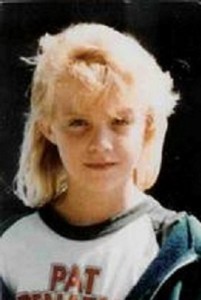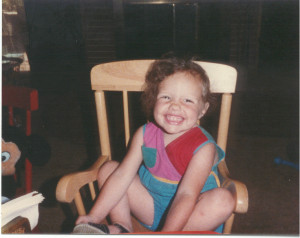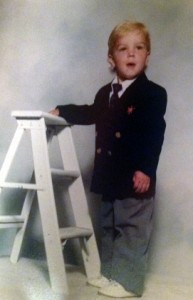By Sharon Murch
My daughter, Michaela Joy Garecht, has been missing for over 25 years, the victim of a witnessed stranger abduction. She was nine years old on November 19, 1988, when she and her best friend rode their scooters two blocks from home to the neighborhood market. They parked the scooters by the door while they went into the store, but when they came out one was not where they had left it. Michaela spotted it first, in the parking lot, and went to get it. As she bent over to pick it up, a man jumped out of the car parked next to it, and grabbed her from behind. Michaela screamed and her friend, Trina, turned to see the kidnapper throw Michaela into his car, and take off with her.
The police were called and responded immediately. By the time I found out what had happened, they were already looking for her, and I had no doubt with the quick response time and with the eyewitness description, she would be found quickly. But she wasn’t. Despite the efforts of the police, the media, and the huge and heartwarming outpouring of love and support by the community, she was not found quickly. She was not found at all.
After Michaela was kidnapped, I was tortured with thoughts of what she might be enduring right that minute. But I thought about those poor parents who had lost their children to illness or accident, and thought maybe I had it easier because in the very worst times I had that hope to carry me through, the hope that my daughter would come home safely. Every time a police car pulled up in front of my house I would run to the window, expecting to see Michaela sitting in the back seat. I would stand at my front door and gaze down the street where I’d watched her disappear from sight, hoping to see her little blonde head bobbing towards home.
But a year passed then two years, five years, ten, twenty, and now twenty-five. I discovered that hope is not always a brightly colored helium balloon that helps keep your spirits up. Sometimes it is dark and filled with lead, a weight that drags on you with every step you take, making you so weary you just don’t think you can go on. But you do. You have to,, because your child, who would now be an adult, your child who now would be just a little older than you were when you lost her, is still missing.
After a while, there is not much more that can be done, but you keep doing it anyway. For me, buoyed by the hope presented by other long-missing children having been found, I reach out to my daughter herself. I keep a BLOG in which I write to her, and even provide maps to help her get to embassies in other countries where she might be. I continue to talk to the media whenever asked, not because I want to, but because I continue to hope that perhaps Michaela will see it someday, somewhere.
Not many, but some people have criticized me for not being realistic, for not recognizing that after more than 25 years chances are Michaela is not alive. I do recognize that. But if I continue to knock myself silly looking for her and she is not alive, no harm is done to anyone but myself. On the other hand, if she is still alive, she may be suffering, and she needs me to keep looking for her. So that is what I do, and what I will continue to do, to look for my missing child, until the day she is found.









